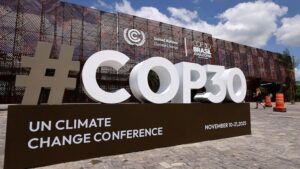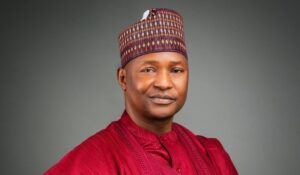
Public concern about climate change has dropped significantly in Kenya and South Africa in 2025, according to new data released by the Forest Stewardship Council (FSC) during its General Assembly.
Findings from the 2025 Global Consumer Awareness Survey, conducted by IPSOS across 50 countries with more than 40,000 respondents, reveal that global attention has shifted from climate issues to geopolitical and security concerns. While war and conflict (52%) now top the list of global public worries, climate change trails at 31%.
In Kenya, concern for climate change fell sharply from 42% in 2022 to 30% in 2025, though deforestation remains the top environmental issue, with 47% of respondents citing it as their primary concern — the highest globally. South Africa also recorded a decline from 32% to 25%, while in Egypt, which joined the survey for the first time, 32% of respondents identified wildfires as a major environmental threat.
Despite declining climate anxiety, many Africans still recognize the deep connection between forests, livelihoods, and climate stability. “When people see forests under pressure, they connect the dots between nature, water, and livelihoods. Protecting forests isn’t just about trees — it’s about stability, resilience, and hope in a changing climate,” said Subhra Bhattacharjee, FSC Director General.
The report further shows that droughts and floods are major issues in Kenya, with 40% of respondents expressing concern — 10 points higher than South Africa and 13 points above Egypt.
Read Also: IsDB Institute, LSEG launch report on Islamic finance, development traps
In terms of biodiversity, South Africans (42%) expressed the highest concern over the loss of plant and animal species, exceeding the global average of 36%.
While public worry about climate change is softening, consumer behavior remains environmentally conscious. Across the surveyed markets, 72% of consumers said they prefer products that do not harm plants or animals. In Kenya, 79% of respondents believe sustainability information on products should be certified by an independent organization, underscoring continued demand for transparency in sustainable sourcing.
“Even as global priorities shift, people here continue to care about forests and the livelihoods they sustain. They want transparency, fairness, and proof that the products they buy make a real difference,” said Annah Agasha, Deputy Director, FSC Africa.
FSC warns that as global crises such as war, pandemics, and inflation dominate public debate, climate action risks slipping down the policy agenda. The organization is calling for integrated strategies that combine environmental protection with social and economic security, ensuring that climate priorities remain central to global decision-making.
The findings are being discussed this week at the FSC General Assembly, where international stakeholders are shaping the future of responsible forest management and its role in combating climate change.








